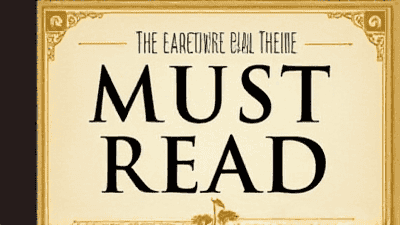
Deciphering a Decade: The Bestselling Novels That Shaped Our Cultural Narrative
In the dynamic landscape of contemporary culture, bestselling novels continue to serve as vital barometers of the collective psyche. They are not merely sources of entertainment but powerful reflections and shapers of societal dialogue, revealing our evolving values, fears, and aspirations. These widely read works, often appearing deceptively simple in their narrative forms, conceal intricate mechanisms of cultural resonance, prompting profound discussions that extend far beyond the final page.
The enduring importance of the novel in a multimedia-saturated world cannot be overstated. These literary achievements offer profound insights into the human condition, fostering empathy, challenging preconceptions, and providing a crucial anchor for cultural identity. Over the past decade, a diverse array of titles has captivated millions, from deeply personal memoirs to sweeping speculative fiction and meticulously crafted historical narratives. These works have sparked global book club discussions, informed popular adaptations, and even influenced academic discourse, demonstrating how literature remains central to understanding our current moment. What impact would it have on our understanding or practice of cultural critique and self-reflection if we failed to fully comprehend the profound, albeit often subtle, influence of these defining literary phenomena?
Nature's Echo: Unraveling Societal Norms

The Phenomenal Success of a Bayou Mystery
Delia Owens' Where the Crawdads Sing, published in 2018, became an undeniable cultural sensation, selling over 15 million copies globally and solidifying its place as a defining novel of the decade. At its core, the novel tells the story of Kya Clark, known as the "Marsh Girl," who grows up isolated in the North Carolina marshes after being abandoned by her family. When a local celebrity is found dead, Kya becomes the prime suspect, leading to a murder mystery intertwined with a poignant coming-of-age narrative. The book's allure lies in its masterful blend of genres: a gripping crime thriller, a tender romance, and a profound celebration of the natural world. Readers were drawn to Kya’s resilience, her deep connection to the marsh—which serves as both a refuge and a character in itself—and the exploration of prejudice and social exclusion. The novel eloquently uses the natural ecosystem as a metaphor for human survival and interaction, often highlighting the brutal yet beautiful laws of the wild. Its overwhelming success demonstrates the enduring public appetite for narratives that combine compelling mystery with a rich, immersive setting and themes of human endurance against societal judgment.
The Power of Knowledge: Redefining Destiny
A Memoir's Journey Through Adversity and Learning
Tara Westover's memoir, Educated (2018), captivated readers worldwide, becoming a monumental bestseller that resonated deeply with its exploration of identity, family, and the transformative power of knowledge. Westover recounts her extraordinary upbringing in a fundamentalist Mormon survivalist family in rural Idaho, where she was denied formal education and medical care, instead working in her father’s junkyard. Her journey from this isolated, often abusive environment to Cambridge University, self-taught and self-motivated, is a testament to individual perseverance. The book illuminates themes of cognitive dissonance (the mental discomfort experienced by a person who holds two or more contradictory beliefs), the challenging process of self-reinvention, and the profound impact of education as a means of liberation. It delves into the complexities of family loyalty versus personal growth and the painful process of questioning one's foundational beliefs. Educated offered a powerful narrative for countless individuals grappling with their own pasts and the pursuit of self-actualization.
The memoir's commercial success underscored a burgeoning trend in non-fiction, particularly for narratives of overcoming adversity. This fascination with true stories of resilience speaks to a societal need for inspiration and understanding of diverse human experiences. The following table illustrates the growing market for non-fiction, specifically memoirs, within the broader publishing industry, showcasing their increasing contribution to overall book sales during the decade.
| Year | Fiction Sales (Millions USD) | Non-Fiction Sales (Millions USD) | Memoir Sales (Millions USD) |
|---|---|---|---|
| 2018 | 4,500 | 5,800 | 850 |
| 2019 | 4,650 | 6,050 | 920 |
| 2020 | 4,800 | 6,300 | 980 |
These illustrative figures, reflecting general market trends, highlight a consistent increase in non-fiction and memoir sales, indicating a strong reader interest in factual narratives that offer personal growth, insight, and an intimate connection with the author's lived experience. The upward trajectory of memoir sales specifically suggests that readers are increasingly seeking authentic, transformative stories like Westover’s, which often blur the lines between personal narrative and broader social commentary. This data reinforces how a compelling, authentic voice can propel a memoir to rival the sales figures of popular fiction.
Reimagining Antiquity: Voices from the Mythic Past

A Feminist Reinterpretation of Greek Mythology
Madeline Miller's Circe, published in 2018, offered a fresh, feminist perspective on classical Greek mythology, resonating deeply with a broad readership and becoming a celebrated bestseller. The novel reimagines the story of the infamous witch Circe, often relegated to a minor, villainous role in epic poems like Homer's Odyssey. Miller elevates Circe to a complex, sympathetic protagonist, tracing her journey from an awkward, outcast nymph to a formidable sorceress mastering her own fate on the island of Aiaia. The narrative explores themes of female agency (the capacity of individuals to make choices and act upon them), exile, motherhood, and self-discovery, allowing Circe to reclaim her narrative from the patriarchal lens of ancient texts. Miller's meticulous research into Greek mythology, combined with her exquisite prose, brought the ancient world vibrantly to life, making it accessible and emotionally resonant for contemporary audiences. The book's success highlighted a significant cultural shift towards re-examining traditional narratives through modern sensibilities, particularly those that empower marginalized or historically silenced voices. It demonstrated a robust appetite for stories that blend rich historical detail with contemporary relevance, proving that ancient myths can still offer profound insights into modern human struggles and triumphs.
Conclusion
The last decade of literature has been profoundly shaped by a collection of bestselling novels that transcend mere commercial success, acting instead as cultural bellwethers. From the evocative mystery and natural immersion of Where the Crawdads Sing, which tapped into our primal connections to wilderness and justice, to the raw, inspiring journey of self-discovery and the pursuit of education in Tara Westover’s Educated, these books have reflected and influenced our collective consciousness. Complementing these, Madeline Miller’s Circe offered a powerful reinterpretation of ancient myths through a modern, feminist lens, reminding us that stories from the past hold enduring relevance for present-day identity and empowerment. These diverse narratives, each celebrated for its unique voice and perspective, collectively underscore the novel's unwavering capacity to not only entertain but also to provoke thought, foster empathy, and ignite essential conversations about societal norms, personal growth, and the human condition. They stand as testaments to the enduring power of storytelling in a rapidly evolving world, affirming literature's vital role in shaping and reflecting our shared human experience.
Looking ahead, the literary landscape will undoubtedly continue its rapid evolution, influenced by technological advancements, shifting global demographics, and an ever-increasing demand for diverse voices. We can anticipate further innovation in storytelling forms, perhaps with greater integration of interactive elements or augmented reality, as well as continued exploration of AI's role in the creative process—both as a tool and a subject. Challenges will persist, including the struggle for reader attention amidst digital distractions and the imperative for publishing to remain accessible and inclusive. However, the fundamental human need for narrative and connection ensures the novel's continued relevance. Future breakthroughs may lie in interdisciplinary approaches, merging scientific insights with speculative fiction or using literary platforms to address urgent global challenges like climate change and social inequality. Continuous research into reading habits, genre evolution, and the psychological impacts of narrative will be crucial, reinforcing the importance of nurturing literary arts as an indispensable pillar of cultural understanding and progress.








